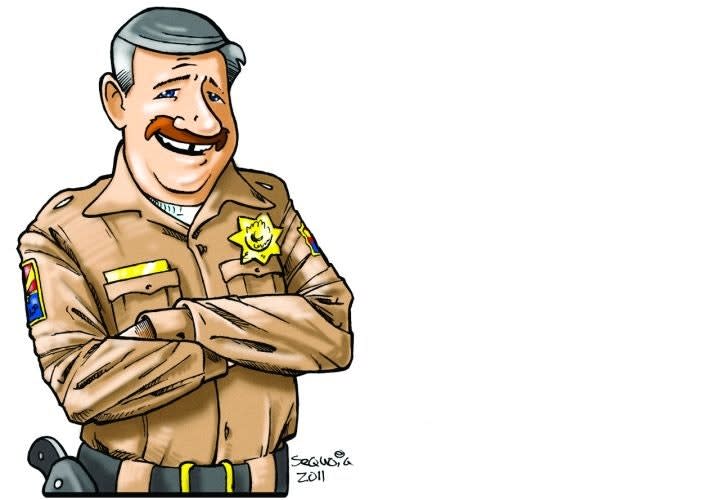The recent murder of a French police commander and his wife in their home was broadcast by the suspect on “Facebook Live” to the delight of terrorists and to the horror of all healthy humans, especially those of us in the crime-fighting community.
Identity control has been a topic for decades in the law enforcement profession. In the mid-1970s, I remember a gang rented an apartment next to the Tucson Police Department parking lot and tried to build a catalog of all the plainclothes officers, which included pictures and personal data. When we discovered that we were stunned, and we quickly changed our phone numbers to “unlisted.”
I know, I know, “Speak English, Smith; what is unlisted?” In the old days we had publicly distributed books filled with people’s names, addresses, and phone numbers; they were called “phone books,” and for a few extra dollars a year the phone company would not publish your information.
Today, social media makes it easier than ever to find local officers and, even more terrifying, their families. To make matters even worse, we have domestic and international terror groups actively advocating the murder of law enforcement personnel. As the threat has grown greater and greater from gangs, terrorists, revenge seekers, and emotionally disturbed individuals, the ability to protect your identity and that of your loved ones has gotten weaker and weaker.
Don't believe me? Let’s do a rather depressing little experiment. Go to your own Facebook page. You know you’ve got one; even my alter ego “JD Buck Savage” has a Facebook page. Now type in “police officers near me” in the search bar. If your computer, tablet, or phone is GPS enabled you’ll get a list of people in your current location who identify themselves as affiliated with “police” organizations, complete with photos, thoughts, other law enforcement folks, and family. Just think what a home grown “wannabe” jihadist could do with that information. Scary, huh?
Any officer who is on social media should know it makes us too easy to find. So here are a few steps to take: First, eliminate your social media profile. If you can't do that, change your privacy settings to completely lock down your profile. Consider changing your name to an obscure movie character, or use a nickname and eliminate any police affiliation. Do not, I repeat, do not change your job description to anything the media can use against you like “human waste disposal.” That could be very bad if you get involved in a controversial use-of-force incident.
Minimize your “check-ins” and other location-based posts that give your exact location; or wait until an event is over, or you have moved to another location, before posting.
Go through your list of “friends” and “followers” and do some purging. I know that Facebook, Twitter, Instagram, Snapchat, and other social media platforms are great for reconnecting with your fourth-grade classmates and distant family members, but if crazy third cousin Louie keeps posting “kill the pigs” memes, stop arguing with him and just hit “block.”
Finally, you need to get your loved ones up to snuff on how dangerous the world is today for officers and their families. Talk to mom and dad, the kids, the neighbors, your grandkids, and tell them to simply not discuss your profession with strangers. Yes, they are very proud of you and should be, but the world today isn’t as simple as it once was. Explain to grandpa that the modern cyber-world has made it a hundred times easier for those who seek to do us harm to find us, and this is extremely dangerous for us.
Impress upon your loved ones the fact that they have a responsibility to help keep themselves out of harm’s way. You’re doing everything you can to keep them safe. But you need their help. In other words, bring them into your world and make them aware of the danger.
Dave Smith is an internationally recognized law enforcement trainer and is the creator of "JD Buck Savage." You can follow Buck on Twitter at @thebucksavage.













